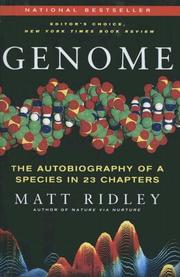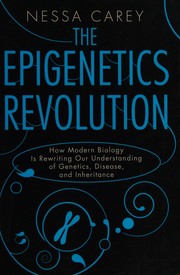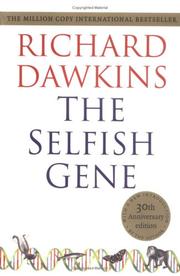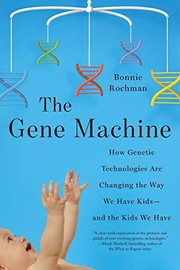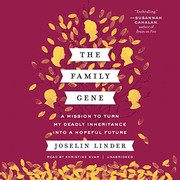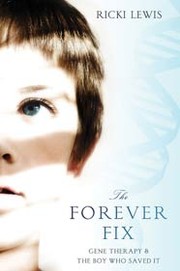Are you fascinated by the potential of genetic engineering and eager to explore the ethical, scientific, and societal implications of this groundbreaking field? Look no further! We’ve curated a list of the 20 best books on genetic engineering that will satisfy your curiosity and stimulate your intellect. Whether you’re a scientist, student, or simply an avid reader, these books offer captivating insights into the world of genetic engineering. From thought-provoking narratives to informative non-fiction, these genetic engineering books will broaden your understanding of this cutting-edge technology.
Contents
- 1 20 Best Genetic Engineering Books
- 2 The Gene: An Intimate History
- 3 Genome: The Autobiography of a Species in 23 Chapters
- 4 The Epigenetics Revolution: How Modern Biology Is Rewriting Our Understanding of Genetics, Disease, and Inheritance
- 5 The Language of Life: DNA and the Revolution in Personalized Medicine
- 6 The Violinist’s Thumb: And Other Lost Tales of Love, War, and Genius, as Written by Our Genetic Code
- 7 The Immortal Life of Henrietta Lacks
- 8 The Eighth Day of Creation: Makers of the Revolution in Biology
- 9 The Selfish Gene
- 10 The Moral Lives of Animals
- 11 The Red Queen: Sex and the Evolution of Human Nature
- 12 The Gene Machine: How Genetic Technologies Are Changing the Way We Have Kids—and the Kids We Have
- 13 The Tangled Tree: A Radical New History of Life
- 14 The Family Gene: A Mission to Turn My Deadly Inheritance into a Hopeful Future
- 15 The Forever Fix: Gene Therapy and the Boy Who Saved It
- 16 Brave New World
- 17 Oryx and Crake
- 18 Jurassic Park
- 19 Frankenstein
- 20 The Double Helix
- 21 Regenesis: How Synthetic Biology Will Reinvent Nature and Ourselves
- 22 Final Thoughts on Best Genetic Engineering Books
- 23
20 Best Genetic Engineering Books
The Gene: An Intimate History
by Siddhartha Mukherjee
The Gene: An Intimate History by Siddhartha Mukherjee is a captivating exploration of the history and science of genetics. Mukherjee, a renowned oncologist and Pulitzer Prize-winning author, takes readers on a compelling journey through the discovery, understanding, and manipulation of genes. This book delves into the complex and fascinating world of heredity, examining the profound impact of genes on human life and society. With a blend of personal stories, scientific research, and ethical considerations, Mukherjee skillfully navigates through the history of genetic engineering, from the early days of Gregor Mendel’s experiments to the modern era of CRISPR technology and gene editing.
Through vivid storytelling and insightful analysis, The Gene offers a thought-provoking look at the promises and perils of genetic engineering, and the profound implications it has for humanity. Whether you are a science enthusiast or simply curious about the secrets hidden within our DNA, this book provides a captivating and enlightening journey through the intricacies of genetics and its impact on our lives.
Genome: The Autobiography of a Species in 23 Chapters
by Matt Ridley
Genome: The Autobiography of a Species in 23 Chapters is a captivating exploration of the human genetic code. Written by Matt Ridley, this groundbreaking book delves into the intricacies of our DNA, taking readers on a fascinating journey through 23 chapters, each dedicated to a different aspect of our genetic makeup. Ridley’s engaging writing style and deep insights into the world of genetics make this book a must-read for anyone interested in the inner workings of the human body.
Whether you’re a science enthusiast or simply curious about the mysteries of our genetic code, Genome offers a compelling blend of scientific knowledge, history, and personal anecdotes. Through vivid storytelling and thought-provoking analysis, Ridley brings to life the complex and wondrous world of genetics, shedding light on the past, present, and future of genetic engineering.
With its accessible prose and captivating subject matter, Genome is a must-read for anyone who wants to gain a deeper understanding of themselves and the world around them. This genetic engineering book is sure to leave a lasting impression on all who delve into its pages.
The Epigenetics Revolution: How Modern Biology Is Rewriting Our Understanding of Genetics, Disease, and Inheritance
by Nessa Carey
The Epigenetics Revolution by Nessa Carey is a fascinating exploration of the burgeoning field of epigenetics, which is revolutionizing our understanding of genetics, disease, and inheritance. Carey presents complex scientific concepts in a clear and accessible manner, making the book an engaging and informative read for both experts and laypeople.
Through captivating storytelling and compelling evidence, Carey explains how epigenetics is reshaping our understanding of genetics and inheritance, challenging the traditional view of DNA as the sole determinant of our biological destiny. She delves into the implications of epigenetics for human health, disease, and evolution, highlighting the potential for groundbreaking advancements in medicine and personalized treatments.
Whether you’re a scientist, healthcare professional, or simply curious about the latest developments in biology, The Epigenetics Revolution offers a thought-provoking and eye-opening journey into the world of epigenetics. This book is a must-read for anyone interested in the cutting-edge field of epigenetics and its far-reaching implications for the future of genetics and medicine.
The Language of Life: DNA and the Revolution in Personalized Medicine
by Francis S. Collins
The Language of Life: DNA and the Revolution in Personalized Medicine is a captivating book on genetic engineering that delves into the groundbreaking field of personalized medicine. Written by renowned geneticist Francis S. Collins, this book offers a fascinating overview of the incredible potential of genetic research and its impact on healthcare.
Collins provides readers with a comprehensive exploration of how our understanding of DNA and genetics is revolutionizing the way we approach healthcare. He discusses the implications of genetic engineering on the diagnosis, treatment, and prevention of diseases, offering insights into the future of personalized medicine.
Through engaging storytelling and accessible language, Collins manages to demystify complex genetic concepts, making this book about genetic engineering a compelling read for both medical professionals and laypersons alike. The Language of Life is a must-read for anyone interested in the intersection of genetics, medicine, and the future of healthcare.
The Violinist’s Thumb: And Other Lost Tales of Love, War, and Genius, as Written by Our Genetic Code
by Sam Kean
The Violinist’s Thumb by Sam Kean is a captivating exploration of the fascinating world of genetics. With a blend of science, history, and personal stories, Kean delves into the hidden tales encoded within our DNA. The book takes readers on a journey through the lives of scientists, artists, and historical figures, uncovering the ways in which genetics has influenced their destinies.
Through captivating anecdotes and vivid storytelling, Kean reveals the intricate connections between genetics, love, war, and genius. From the discovery of the double helix structure to the impact of genetic mutations on human history, The Violinist’s Thumb provides a captivating look at the wonders and complexities of our genetic code.
Whether you’re a science enthusiast or simply curious about the secrets held within our DNA, this book offers a compelling and accessible exploration of the profound impact of genetics on our lives. With its engaging narrative and thought-provoking insights, The Violinist’s Thumb is a must-read for anyone intrigued by the mysteries of genetic engineering.
The Immortal Life of Henrietta Lacks
by Rebecca Skloot
The Immortal Life of Henrietta Lacks by Rebecca Skloot is a captivating and thought-provoking nonfiction book that delves into the intersection of ethics, race, and the groundbreaking field of genetic engineering. This book tells the remarkable story of Henrietta Lacks, a woman whose cancer cells were unknowingly taken and used for scientific research, leading to countless medical breakthroughs.
Skloot skillfully weaves together the scientific advancements made possible by Lacks’ cells with the personal and ethical implications of using them without her knowledge or consent. The book explores the complex history of medical experimentation on African Americans and the enduring legacy of Henrietta Lacks’ cells, known as HeLa, which have been used in countless scientific studies and breakthroughs.
Through meticulous research and compelling storytelling, Skloot brings to light the human story behind the cells that have revolutionized the field of genetic engineering. The Immortal Life of Henrietta Lacks is a must-read for anyone interested in the intersection of science, ethics, and the impact of genetic engineering on society.
The Eighth Day of Creation: Makers of the Revolution in Biology
by Horace Freeland Judson
The Eighth Day of Creation: Makers of the Revolution in Biology by Horace Freeland Judson is a captivating exploration of the pioneers and visionaries who transformed the field of biology. This groundbreaking book delves into the world of genetic engineering, chronicling the tireless efforts and groundbreaking discoveries that paved the way for the modern biotechnological revolution.
Judson’s narrative skillfully weaves together the personal stories of scientists, the triumphs and setbacks they faced, and the societal and ethical implications of their work. The book paints a vivid picture of the scientific community’s relentless pursuit of knowledge and the profound impact their discoveries have had on our understanding of life itself.
The Eighth Day of Creation is a compelling and comprehensive account that brings to life the exhilarating quest to unlock the mysteries of genetics and revolutionize the field of biology. It is a must-read for anyone interested in the history and future of genetic engineering.
The Selfish Gene
by Richard Dawkins
The Selfish Gene by Richard Dawkins is a thought-provoking exploration of the science of evolution and the role that genes play in shaping the natural world. Dawkins introduces the concept of genes as selfish entities that are constantly striving for their own survival and replication. He argues that it is the genes, not the individual organisms, that are the driving force behind evolution.
This groundbreaking book takes readers on a journey through the intricate workings of genetics, natural selection, and the survival of the fittest. Dawkins presents complex scientific concepts in a clear and accessible manner, making The Selfish Gene a must-read for anyone interested in understanding the underlying principles of life and evolution.
Whether you’re a science enthusiast or simply curious about the natural world, this book provides a fascinating and thought-provoking look at the mechanisms of evolution and the incredible power of genes. With its compelling insights and engaging writing style, The Selfish Gene is a timeless classic that continues to inspire and inform readers about the fascinating world of genetic engineering.
The Moral Lives of Animals
by Dale Peterson
The Moral Lives of Animals by Dale Peterson is a captivating exploration of the ethical behaviors exhibited by animals. Peterson delves into the complex world of animal morality, drawing on scientific research and compelling anecdotes to demonstrate the rich tapestry of moral behaviors displayed by a wide range of species. From empathy and cooperation to fairness and justice, Peterson reveals how animals navigate the moral dilemmas of their own existence.
This thought-provoking book challenges traditional notions of morality as a uniquely human trait, offering a fresh perspective on the ethical lives of animals. Peterson’s engaging narrative style and meticulous attention to detail make The Moral Lives of Animals a compelling read for anyone interested in the complexities of animal behavior and the ethical implications of our interactions with the natural world. Whether you’re an animal lover, a science enthusiast, or simply curious about the moral dimensions of the animal kingdom, this book offers a fascinating journey into the heart of animal morality.
The Red Queen: Sex and the Evolution of Human Nature
by Matt Ridley
The Red Queen: Sex and the Evolution of Human Nature by Matt Ridley is a captivating exploration of the intricate relationship between human nature and evolution. Ridley delves into the fascinating world of genetics and natural selection, unraveling the complex interplay of sex and evolution. The book takes readers on a journey through the evolutionary arms race between organisms, shedding light on the concept of the Red Queen hypothesis, where organisms must constantly adapt and evolve in order to survive and reproduce.
Ridley’s compelling narrative is filled with thought-provoking insights and compelling evidence, making the book a must-read for anyone interested in understanding the underlying forces that shape human nature. As Ridley expertly weaves together scientific research and engaging storytelling, readers are sure to be captivated by the profound implications of evolution on human behavior and the dynamics of sexual selection. The Red Queen is a seminal work that offers a fresh perspective on the intricate web of evolution and sex, making it a truly enlightening read for anyone curious about the mysteries of human nature.
The Gene Machine: How Genetic Technologies Are Changing the Way We Have Kids—and the Kids We Have
by Bonnie Rochman
The Gene Machine: How Genetic Technologies Are Changing the Way We Have Kids—and the Kids We Have is a thought-provoking book on genetic engineering that delves into the rapidly advancing world of genetic technologies and their impact on reproduction and childrearing. Author Bonnie Rochman explores the ethical, social, and personal implications of genetic engineering, offering a compelling and insightful look at how these technologies are reshaping the very fabric of human existence.
Rochman examines a wide range of topics, from the use of preimplantation genetic diagnosis (PGD) to select embryos free of genetic disorders, to the emerging field of CRISPR gene editing and its potential to eradicate hereditary diseases. Through in-depth interviews and real-life stories, she presents a nuanced and humanizing perspective on the complex issues surrounding genetic engineering, challenging readers to consider the profound implications of these technologies on our society and the future of humanity.
With its engaging storytelling and thought-provoking analysis, The Gene Machine is a must-read for anyone interested in the profound impact of genetic technologies on our lives and the ethical questions they raise.
The Tangled Tree: A Radical New History of Life
by David Quammen
The Tangled Tree: A Radical New History of Life by David Quammen is a captivating exploration of the interconnectedness of all living organisms through the lens of genetic engineering. Quammen takes readers on a fascinating journey through the history of life on Earth, uncovering the surprising ways in which genes have moved between species and reshaped the tree of life. Through vivid storytelling and compelling scientific research, the author reveals how genetic engineering has played a pivotal role in shaping the evolution of life forms, challenging traditional views of how species have evolved.
This groundbreaking book about genetic engineering introduces readers to the revolutionary concept of horizontal gene transfer, where genes can leap between different species, blurring the lines of evolutionary history. Quammen’s meticulous research and engaging narrative style make The Tangled Tree a must-read for anyone curious about the intricate web of life and the profound impact of genetic engineering on the diversity of living organisms.
The Family Gene: A Mission to Turn My Deadly Inheritance into a Hopeful Future
by Joselin Linder
The Family Gene: A Mission to Turn My Deadly Inheritance into a Hopeful Future by Joselin Linder is a compelling memoir that delves into the author’s personal journey with a rare genetic disorder. Linder’s family has a history of a deadly genetic mutation that causes a fatal heart condition. In this captivating book on genetic engineering, Linder explores her family’s medical history, her own genetic testing, and the impact of living with the knowledge of a potentially deadly gene.
As she grapples with the fear of her own mortality, Linder also delves into the fascinating world of genetic engineering, shedding light on the latest scientific advancements and breakthroughs in the field. She takes readers on a thought-provoking and emotional journey as she seeks to understand the implications of genetic testing and the potential for gene therapy to change the course of her family’s deadly inheritance.
The Family Gene is a poignant and insightful genetic engineering book that offers a unique blend of personal storytelling and scientific exploration, making it a must-read for anyone interested in genetics, medical ethics, and the future of genetic medicine.
The Forever Fix: Gene Therapy and the Boy Who Saved It
by Ricki Lewis
The Forever Fix: Gene Therapy and the Boy Who Saved It by Ricki Lewis is a captivating book on genetic engineering that delves into the groundbreaking world of gene therapy. Through the inspiring story of a young boy with a rare genetic disorder, Lewis explores the history, science, and real-life impact of this revolutionary field. Readers are taken on a journey through the triumphs and setbacks of gene therapy, and get an inside look at the dedicated scientists and medical professionals who are working tirelessly to make this technology a reality.
With a compelling narrative and accessible explanations of complex scientific concepts, this book about genetic engineering is perfect for anyone interested in the intersection of genetics, medicine, and ethics. Lewis skillfully weaves together personal stories and cutting-edge research to provide a comprehensive overview of the potential and challenges of gene therapy. Whether you’re a student, healthcare professional, or simply curious about the future of medicine, The Forever Fix offers a thought-provoking and informative exploration of this rapidly advancing field of genetic engineering.
Brave New World
by Aldous Huxley
Brave New World by Aldous Huxley is a thought-provoking novel set in a dystopian future where society is controlled through genetic engineering, conditioning, and the use of a happiness-inducing drug called soma. The story follows the lives of several characters, including Bernard Marx and Lenina Crowne, as they navigate the rigid social structure and confront the consequences of a world driven by pleasure and conformity.
Huxley’s novel explores themes of technology, conformity, and the consequences of a society driven by consumerism and instant gratification. The book offers a chilling critique of a world where individuality is suppressed and human relationships are superficial.
Brave New World is a powerful and cautionary tale that continues to resonate with readers, as it raises important questions about the ethical implications of tampering with nature and the potential consequences of a society driven by technology and consumerism. This book about genetic engineering is a must-read for anyone interested in thought-provoking dystopian fiction.
Oryx and Crake
by Margaret Atwood
Oryx and Crake, a thought-provoking book about genetic engineering, is a captivating dystopian novel by Margaret Atwood. Set in a future world where corporations have taken over and genetic modification is the norm, the story follows the life of Snowman, the last human left on Earth. As he navigates his desolate surroundings, he reminisces about his friendship with Crake, a brilliant but troubled genetic engineer, and his love for Oryx, a mysterious and enigmatic woman.
Atwood’s compelling narrative explores the ethical and moral implications of scientific advancements, painting a haunting picture of a world where technology has run amok. With her masterful storytelling, she delves into the complexities of human nature, the consequences of playing with nature, and the potential downfall of a society driven by greed and unchecked power.
Oryx and Crake is a gripping and thought-provoking genetic engineering book that will leave readers pondering the implications of scientific progress and the fragility of the human race.
Jurassic Park
by Michael Crichton
Jurassic Park is a thrilling science fiction novel by Michael Crichton that explores the dangers of genetic engineering. The story follows a wealthy entrepreneur who creates a theme park filled with genetically engineered dinosaurs. As chaos ensues, a group of scientists, including a mathematician and a paleontologist, must navigate the treacherous island and survive the deadly creatures that roam free. Crichton’s vivid descriptions and meticulous research bring the prehistoric creatures to life, while also delving into the ethical implications of tampering with nature. The novel raises thought-provoking questions about the consequences of playing with genetics and the potential dangers of creating creatures that should have been extinct for millions of years. With its fast-paced action and thought-provoking themes, Jurassic Park is a captivating and cautionary tale about the perils of genetic manipulation.
Frankenstein
by Mary Shelley
Frankenstein, written by Mary Shelley, is a timeless classic that delves into the ethical and moral implications of scientific experimentation. The novel follows the ambitious scientist Victor Frankenstein, who becomes obsessed with creating life through his experiments in alchemy and natural philosophy. In his fervor to play god, Frankenstein succeeds in bringing a creature to life, but is horrified by its monstrous appearance and abandons it.
The creature, rejected by its creator and society, seeks vengeance and ultimately becomes a tragic figure yearning for acceptance and understanding. The novel explores themes of ambition, hubris, and the consequences of unchecked scientific innovation. It serves as a cautionary tale about the dangers of playing with the forces of nature and the responsibilities that come with creation.
Frankenstein is a thought-provoking and gripping read that continues to resonate with readers, particularly those interested in the ethical implications of scientific advancements and the potential consequences of tampering with the building blocks of life.
The Double Helix
by James D. Watson
The Double Helix by James D. Watson is a captivating memoir that delves into the fascinating world of DNA and genetics. This groundbreaking book provides an inside look at the race to unravel the structure of DNA, offering a gripping account of the scientific breakthrough that revolutionized the field of molecular biology.
Written with wit and candor, The Double Helix offers a unique perspective on the competitive and often contentious nature of scientific research. As a key figure in the discovery of the double helix structure of DNA, Watson provides a firsthand account of the personalities, conflicts, and triumphs that shaped this revolutionary scientific achievement.
This book about genetic engineering is a must-read for anyone interested in the history of science or the intricacies of DNA. With its blend of scientific insight and personal narrative, The Double Helix offers a compelling and illuminating journey into the world of genetics.
Regenesis: How Synthetic Biology Will Reinvent Nature and Ourselves
by George M. Church
Regenesis is a groundbreaking book on genetic engineering that delves into the world of synthetic biology and its potential to reshape the natural world as we know it. Written by George M. Church, a renowned geneticist and pioneer in the field, the book explores the possibilities of creating new forms of life, modifying existing organisms, and even reprogramming our own genetic code.
Church takes readers on a captivating journey through the history of genetic engineering, from the discovery of DNA to the latest advancements in CRISPR technology. He discusses the ethical and moral implications of synthetic biology, while also highlighting its potential to address pressing global issues such as climate change, disease eradication, and sustainable energy production.
Regenesis is a thought-provoking and visionary genetic engineering book that challenges readers to reconsider the boundaries of nature and human potential. It offers a glimpse into a future where synthetic biology could not only reinvent nature but also redefine our own existence.
Final Thoughts on Best Genetic Engineering Books
Genetic Engineering is a fascinating and controversial subject that has captivated readers for decades. The 20 best books about genetic engineering listed in this article offer a diverse range of perspectives and insights into this rapidly advancing field. Whether you’re a professional in the field or simply curious about the ethical implications of genetic manipulation, these books are sure to provide a thought-provoking and enlightening read. Dive into the world of genetic engineering with these insightful and captivating books.
Which book about Genetic Engineering is best?
The best book on Genetic Engineering can vary with personal preference, but three widely recommended titles are:
- The Gene: An Intimate History by Siddhartha Mukherjee,
- Genome: The Autobiography of a Species in 23 Chapters by Matt Ridley,
- The Epigenetics Revolution: How Modern Biology Is Rewriting Our Understanding of Genetics, Disease, and Inheritance by Nessa Carey.
Each offers valuable insights and could be a great starting point.
What are the best books to learn about Genetic Engineering?
For those looking to learn about Genetic Engineering, there is a wealth of literature that can provide a comprehensive understanding of the subject. Some of the most highly recommended books include:
- The Gene: An Intimate History by Siddhartha Mukherjee,
- Genome: The Autobiography of a Species in 23 Chapters by Matt Ridley,
- The Epigenetics Revolution: How Modern Biology Is Rewriting Our Understanding of Genetics, Disease, and Inheritance by Nessa Carey,
- The Language of Life: DNA and the Revolution in Personalized Medicine by Francis S. Collins,
- The Violinist’s Thumb: And Other Lost Tales of Love, War, and Genius, as Written by Our Genetic Code by Sam Kean,
- The Immortal Life of Henrietta Lacks by Rebecca Skloot,
- The Eighth Day of Creation: Makers of the Revolution in Biology by Horace Freeland Judson,
- The Selfish Gene by Richard Dawkins,
- The Moral Lives of Animals by Dale Peterson,
- The Red Queen: Sex and the Evolution of Human Nature by Matt Ridley
These books offer a range of perspectives on Genetic Engineering, covering various aspects and approaches to the subject.
What are the best books about Genetic Engineering?
The best books about Genetic Engineering are:
- The Gene: An Intimate History by Siddhartha Mukherjee,
- Genome: The Autobiography of a Species in 23 Chapters by Matt Ridley,
- The Gene Machine: How Genetic Technologies Are Changing the Way We Have Kids—and the Kids We Have by Bonnie Rochman,
- The Tangled Tree: A Radical New History of Life by David Quammen,
- The Selfish Gene by Richard Dawkins,
- The Immortal Life of Henrietta Lacks by Rebecca Skloot.
Each offers unique insights into the subject. While these books about Genetic Engineering are highly regarded, it’s important to note that any list of ‘best’ books is subjective and reflects a range of opinions.
What are the best Genetic Engineering books of all time?
Choosing the best Genetic Engineering books of all time can vary depending on who you ask, but five titles that are often celebrated include
- The Gene: An Intimate History by Siddhartha Mukherjee,
- Genome: The Autobiography of a Species in 23 Chapters by Matt Ridley,
- The Violinist’s Thumb: And Other Lost Tales of Love, War, and Genius, as Written by Our Genetic Code by Sam Kean,
- The Selfish Gene by Richard Dawkins,
- and The Gene Machine: How Genetic Technologies Are Changing the Way We Have Kids—and the Kids We Have by Bonnie Rochman.
Each of these books has made a significant impact in the field of Genetic Engineering and continues to be influential today.


